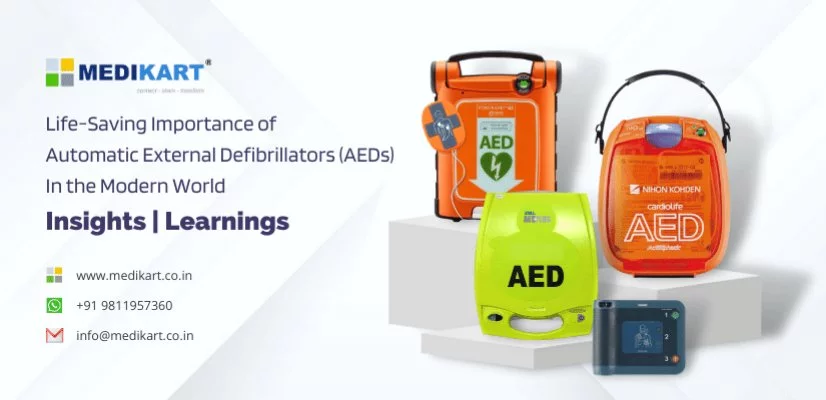Automatic External Defibrillators
Automatic External Defibrillators (AED) are life-saving devices used to treat sudden cardiac arrest (SCA) by delivering an electric shock to the heart to restore its normal rhythm. SCA is a condition in which the heart suddenly and unexpectedly stops beating due to an electrical malfunction. Without immediate treatment, it can lead to brain damage or death within minutes.
AEDs are portable, lightweight, and easy to use devices that can be found in many public places, including schools, airports, malls, and sports facilities. AEDs have become an essential tool for first responders, including police, firefighters, and emergency medical technicians.
How does an AED work?
An AED works by analyzing the heart rhythm of a person in cardiac arrest and determining whether an electric shock is needed. The device delivers a shock to the heart through electrode pads that are placed on the person’s chest. The shock interrupts the abnormal heart rhythm, allowing the heart to reestablish its natural rhythm.
Who can use an AED?
Anyone can use an AED in an emergency situation, regardless of their level of training. AEDs are designed to be easy to use, with clear voice prompts and visual cues that guide the user through the process. However, it is recommended to have some basic CPR and AED training to improve the chances of a positive outcome.
When to use an AED?
AEDs should be used as soon as possible after a person collapses and stops breathing. Use the device in conjunction with cardiopulmonary resuscitation (CPR) until emergency medical services arrive. The chances of survival decrease by 10% for every minute that passes without defibrillation.
Why are AEDs important?
AEDs can increase a person’s chances of survival by up to 70% if used within the first few minutes of cardiac arrest. The prompt use of an AED can also reduce the risk of brain damage and other long-term effects associated with SCA. By making AEDs readily available in public places, more lives can be saved.
AEDs are a critical tool in treating sudden cardiac arrest. They are easy to use and can significantly increase a person’s chances of survival. It is essential to spread awareness about AEDs and their importance in saving lives. By working together to promote their use and availability, we can make our communities safer and more prepared for emergencies.
Disclaimer
The information provided is for general knowledge only. Consult your doctor for personalized advice and treatment. Medikart HealthCare is not liable for any actions taken based on this info.

